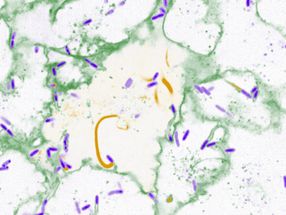Cerus Corporation Awarded Grants for Its Listeria-Based Vaccine Platforms
Cerus Corporation announced the receipt of two research grants to develop vaccines based on its proprietary Listeria platforms. These grants fund early-stage work to develop vaccines to both treat and prevent infections caused by HCV and HIV.
The first grant, awarded to researches at Cerus and two collaborators from Johns Hopkins University (JHU) is entitled, "Development of Listeria-based Clinical Consensus HCV Vaccine Candidates." This grant was received from the National Institute of Allergy and Infectious Disease, a division of the National Institutes of Health.
The collaboration brings together HCV consensus sequence antigens defined at JHU and Cerus' proprietary vaccine platforms that naturally target innate and adaptive immune response to the liver, which is the natural reservoir for chronic HCV infection. These vaccines could be used alternatively to treat individuals with chronic HCV infection or to prevent infection with the virus.
The second grant was awarded to the Fred Hutchinson Cancer Research Center, which is participating in the Collaboration for AIDS Vaccine Discovery (CAVD) initiative funded by the Bill & Melinda Gates Foundation. Cerus will provide HIV vaccine prototypes to Fred Hutchinson's CAVD consortium for evaluation in non-human primate models of HIV infection.
Both the proprietary live-attenuated and KBMA Listeria vaccine platforms developed at Cerus will be evaluated in the HCV and HIV programs. The live-attenuated vaccine platform strain, also known as CRS-100, is currently being tested in an ongoing Phase I clinical trial in study subjects who have advanced carcinoma and hepatic metastases, and are refractory to standard therapy (clinicaltrials.gov identifier NCT00327652).
Most read news
Topics
Organizations
Other news from the department science

Get the life science industry in your inbox
From now on, don't miss a thing: Our newsletter for biotechnology, pharma and life sciences brings you up to date every Tuesday and Thursday. The latest industry news, product highlights and innovations - compact and easy to understand in your inbox. Researched by us so you don't have to.
























































